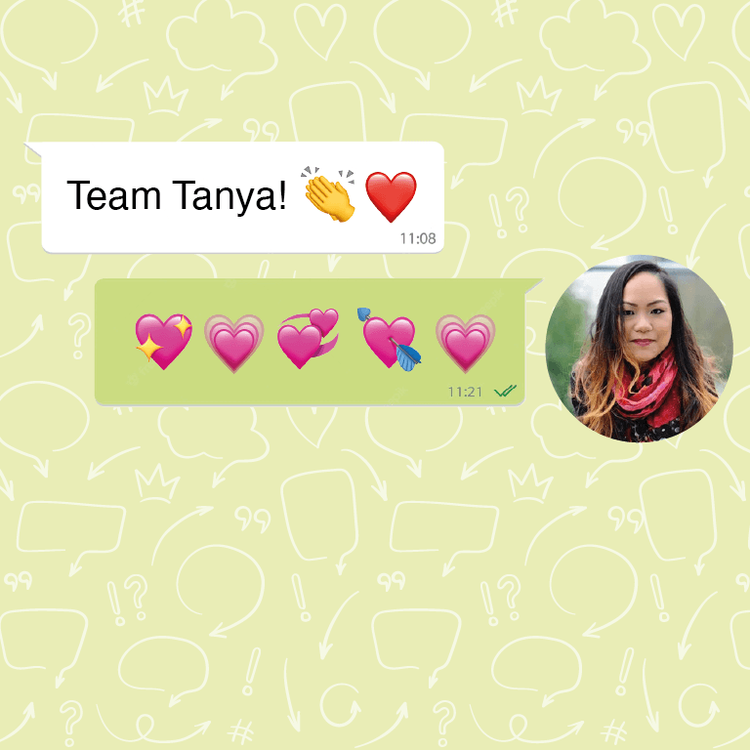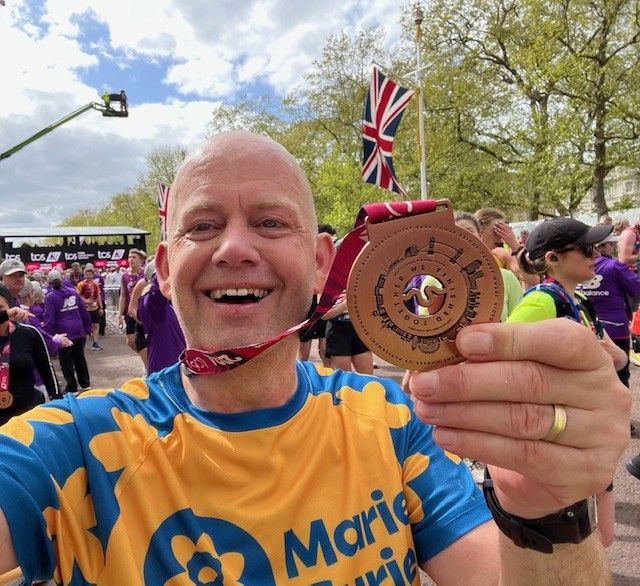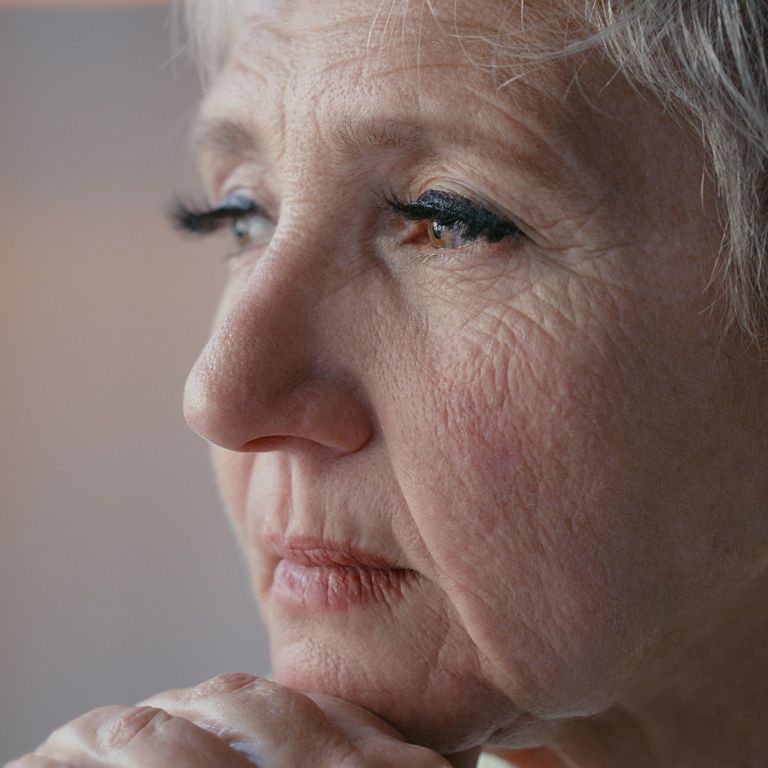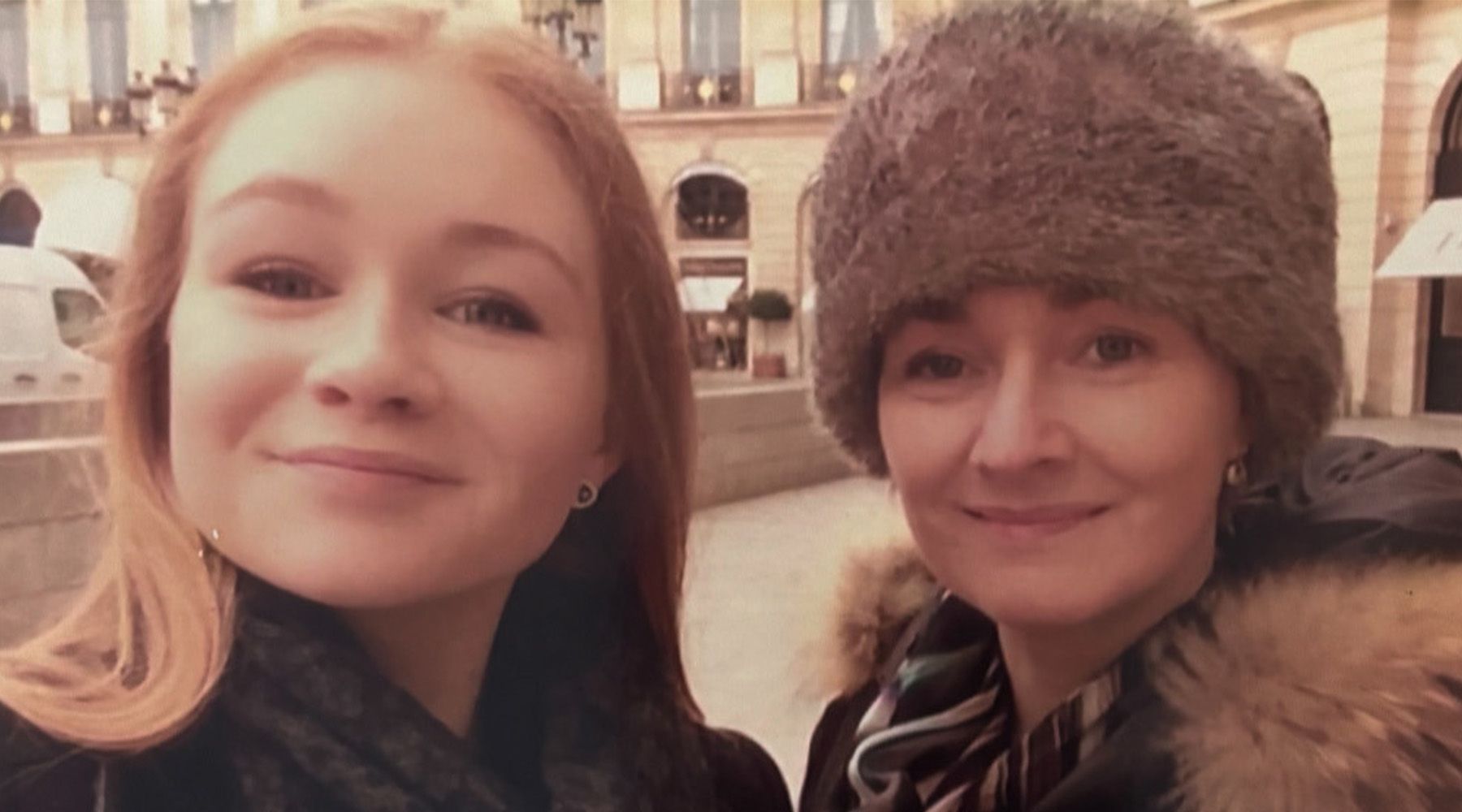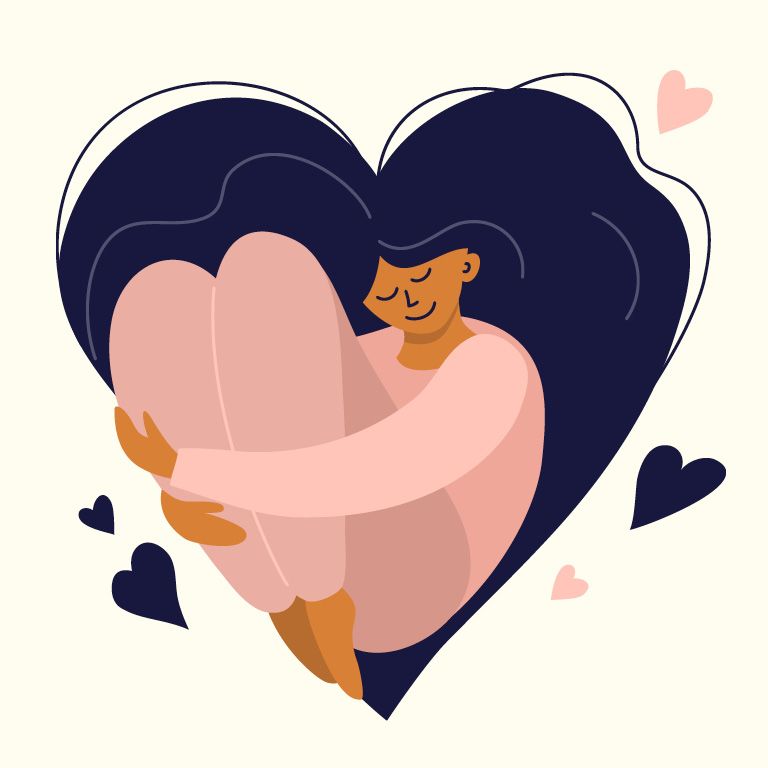Tanya, 43, is living with terminal bowel cancer and has gone from a self-confessed 'tough cookie recluse' to someone who isn't afraid to be vulnerable and ask for help.
I didn't even know I was sick until my tummy suddenly expanded. I went from having a bloated tummy every now and then, which I thought was related to a food allergy, to it suddenly ballooning like I was nine months pregnant. I had people coming up to me at conferences saying 'Congratulations, when are you due?'
I ended up getting one of those London Underground badges made but mine said 'Cancer on Board' instead of 'Baby on Board.' I got so frustrated with having to explain it to people. I hadn't officially been diagnosed, I just thought it might be cancer. There was no easy way to explain it and I was sick of people congratulating me.
Getting diagnosed
My doctor wanted to schedule a colonoscopy. Before the test you have to drink a prep fluid. My tumours were so big that they were compressing my stomach and lungs. I couldn't eat more than one mouthful or drink more than one cupful, it would just come straight back up.
I was admitted to the Royal London for rehydration. It was the bank holiday in May 2018 for Prince Harry and Meghan's wedding. The department I needed were not there because of the bank holiday.
On the Tuesday I was told, 'We think it's bowel cancer and we're going to operate today.' This was at 10am and by 3pm I was on the operating table. When I woke up, my doctor told me it was bowel cancer, it was stage 4, and it was terminal.
Saying my goodbyes
A year into my diagnosis, I had a perforated bowel and had to have emergency surgery. They put a stoma in and after the initial surgery, I had a blockage and had to go back in.
During the secondary surgery they saw additional growth. When I woke up, they said 'based on the growth we've seen, we believe you only have two weeks left.'
They referred me to St Joseph's Hospice in Hackney, London. I went there, essentially, to die. During the two weeks that I was in the hospice, it turned out the surgeon had got it wrong. I'd spent a fortnight there saying my goodbyes, thinking I was dying.
It's devastating to know you have a hard limit on how long you've got left. But you adjust. You get on with it. I've been very, very lucky. Prior to my diagnosis, I was a bit of a recluse. I kept to myself. I didn't have a huge amount of what I would call friends.
An unexpected visitor
A friend I hadn't seen for about four years came to see me in hospital because I accidentally changed my status on WhatsApp, sharing my hospital bed number and which ward I was on at which hospital because I thought I was texting it to somebody.
When she stuck her head around the curtain, I thought I was hallucinating. I burst into tears. I was sobbing and I made her hold my hand for about half an hour before I thought she was real.
When she stuck her head around the curtain, I thought I was hallucinating. I burst into tears. I was sobbing and I made her hold my hand for about half an hour before I thought she was real.
After she left, she got all my friends together on Facebook and said she was setting up a WhatsApp group – Team Tanya – and anybody who cares about Tanya should join. About 43 people joined.
These people became the village that looked after me. When I was in hospital, I messaged saying 'I need something to drink – everything tastes a bit odd because of the medication.' And before I knew it my hospital table looked like a bar with the sheer volume of different drinks.
Team Tanya were just there for me and helped with everything I needed. They all knew who my doctors were and when my appointments were, so I never had an appointment alone. When I went to chemo, I always had a buddy with me. Well, up until covid came along when people weren't allowed to come anymore.
A bit of humanity
In January 2021, I ended up in hospital with sepsis and because I was at the hospital, I got covid. It took me a few months to recover and I developed a blood clot in my thigh. I had to go through physiotherapy just to be able to stand again. Ever since then I've been in constant pain.
I have the option to just use the District Nurses for night care, but I prefer Marie Curie because they spend the time with you. They care about who you are and what you're doing and what's going on with you. And they make sure everything is being relayed back to the hospice.
You never feel rushed, you never feel anything's too much. To be able to say "Hi, how are you?" And have a bit of fun and a bit of humanity in the process. That's what Nurse Clare brings to the job. Connection makes all the difference. It gives a sincerity to what she's doing.
A great thing that she says is: 'Nobody understands the pain better than the patient.' You know your body better than anybody else. When I say 'ouch!', sometimes the district nurses will go 'don't be silly, that didn't hurt!' To have people belittle your pain is very frustrating.
You're not alone
I always thought of myself as a bit of a tough cookie – that I didn't need other people. Being open to asking family and friends for the help you might need is important. The Team Tanya group has been essential in helping me to cope with everything.
That would never have happened if I hadn't been willing to be vulnerable and say I need help and I can't do this on my own. It's important to know you're not alone in these things.
You can support the Great Daffodil Appeal by donating this March. With your support, Marie Curie Nurses can be there for more people affected by terminal illness across the UK.
All rights reserved. Contact stories@mariecurie.org.uk for more information.
